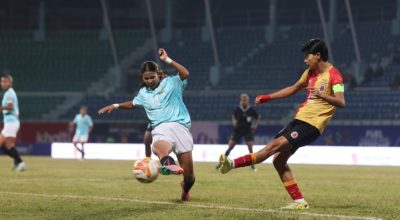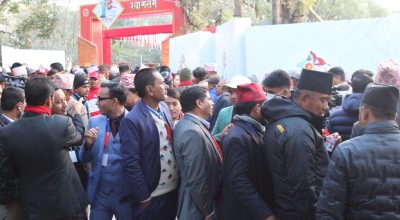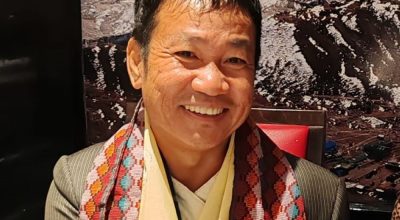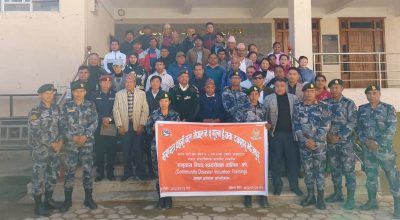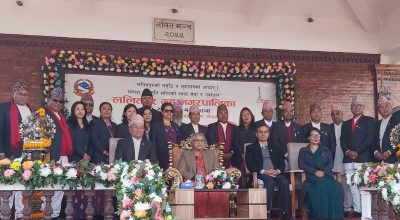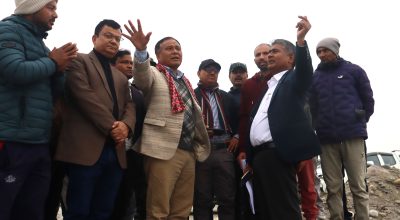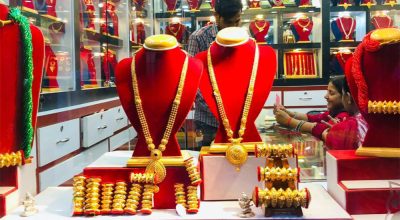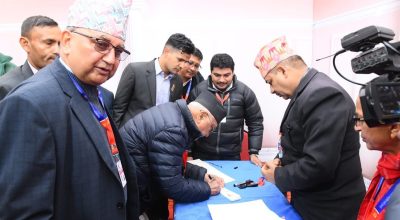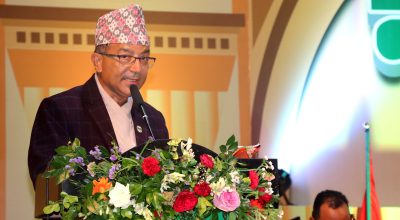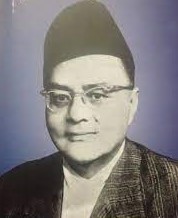
Birat Anupam
Itahari: Today marks the 45th memorial day of Subarna Shumsher Rana, the great democratic figure of Nepal. Subarna had passed away on 24 Kartik 2034 BS. Born on Fagun 1967 BS, Subarna was the grandson of Rana PM Bhim Shumsher and the son of Hiranya Shumsher. Educated in British India, he had accomplished his masters’ degree in English, economics and commerce in his early twenties.
A leading figure among the founding batch of Nepali Congress, Subarna has many hats to describe his immortal presence in Nepal. Here are some 10 noted reasons to remember Subarna.
A Liberal Rana
Born to the Rana family during their autocratic oligarch, Subarna was liberal-minded from the very beginning. It might be owing to his educational exposure to British India, he was liberal to give more rights to people. This, however, was not practical in times of iron-fisted Rana regime. Subarna was one of the very few Rana figures who was actively supportive of the first written constitution of 2004 BS during the premiership of Padma Shumsher. This constitution, however, was not officially promulgated as Padma was ousted by Mohan Shumsher.
One of the expelled Rana out of capital Kathmandu
Chandra Shumsher started the categorization of A, B and C class of Rana. According to a book titled ‘Singh Durbar’ written by Sagar SJB Rana, A-class Rana would represent ”the legitimate children born from a married high-caste Chhetri wife.” Likewise, ” B-class children were from the Chhetri caste but born out of wedlock, and C-class children were born out of wedlock and from lower-caste mothers.” On Chaitra of 1990 BS, Subarna was among those expelled for being C-class Rana, said a book titled ‘Subarna Shumsher: Nisthako Rajnitik Yatra’ written by Krishna Dharabashi. Unlike other Rana peers, Subara, however, did not stay in Nepal. He went to Kolkata directly as he had strong connection there built during his college days. It is widely written that Subarna purchased the cheaply available land and properties owned by exiting British nationals in Kolkotta, which increased his fortunes rapidly which was later used for the Nepal’s democratic movement.
Founder of Nepal Democratic Congress
Today’s Nepali Congress is the merged form of Nepali National Congress and Nepali Democratic Congress. Subarna was the one of the founders and the financers of the Nepali Democratic Congress. He was not in top position in the Nepal Democratic Congress established in 2004 BS. Mahendra Bikram Shah (not the king Mahendra) was the president of the party. After the merger of two-congress party in 2006 BS, Subarna became treasurer of the united congress party. Additionally, the incumbent four-star red and white flag of Nepali Congress was also the brainchild of Subarna.
Architect of military front of Congress party
Leaders of Nepali National Congress like Matrika Koirala, BP Koirala, among others, were pitching peaceful movement to overthrow Rana regime. Subarna, as an insider and someone knowing Rana regime deeply, was in favor of armed struggle. Initially his idea was not entertained but later adopted an official policy. Armed attacks on many southern borders towns starting from Birgunj evolved into grand success in other town like Biratnagar, Jankpur as well as hilly area like Bhojpur came under congress control. Rana regime was shaken militarily for the first time from people’s force. This was one of the major factors for the downfall of Rana regime and the dawn of democracy in Nepal.
One of the greatest donors of Nepal’s democratic movement
It is said that Subarna had sold big share of his properties just to finance Nepali Congress party. He was said to have donated Rs. 10 million at the start of armed struggle. This was a huge amount some 72 years ago. It is still a huge sum of money. Many writers, leaders and historians have unanimously said that Subarna would house, feed and fund hundreds of leaders and cadres of Nepali Congress in their exile in India.
First finance minister to read budget
Subarna read out the first budget in the budgetary history of Nepal. He had read the budget speech on 19 Magh 2008 BS. In his maiden budget speech, he had talked details of earnings and expenditures transparently to the public. It was broadcast from Radio Nepal.
First former PM to be ready to stay as deputy PM
Subarna is probably the first PM in the history of Nepal to be Okayed for being deputy PM. He did so for his respect to BP Koirala. Subarna was the PM to run the first General Elections of 2015 BS. He became deputy PM after the new popularly elected BP Koirala cabinet of 2016 BS. This is an exciting example of trust and respect between Subarna and BP.
First Vice-chancellor of Tribhuvan University
Tribhuvan University is the oldest university of Nepal. Moreover, very few people are aware of the fact that Subarna was the founding Vice-chancellor of this apex academic organization in the country.
Socialist by heart
Nepali Congress had adopted socialism as its guiding principle in 2012 BS. Subarna was the newly elected President from the Sixth General Convention of Nepali Congress held at Birgunj when this ideology was formally inducted as the party’s official principle. In addition, it was Subarna to abolish Birta system on 19 Poush 2016 BS. He had donated 12,000 Bigha of personal land to the state for his personal gesture towards that end.
No greed of power but exemplary of popular mandate
People in the power are not eager to leave their position. Subarna, however, was not power-hungry politician. He is the only Nepali Congress President working just for single short-term tenure. He served as the President only for two years after his elected victory from Sixth General Convention of Birgunj in 2012 BS. Subarna has the strongest record of accomplishment of electoral victory. He had won from three seats in the first General Elections of 2015 BS. He came victorious from constituency number 52 (Bara Mid-North) 53 (Bara Parsha East) and 91 (Gulmi South-West). It is said that Subarna had not put his foot in Gulmi. Despite this, he was elected. This shows his scale and scope of the popularity.







